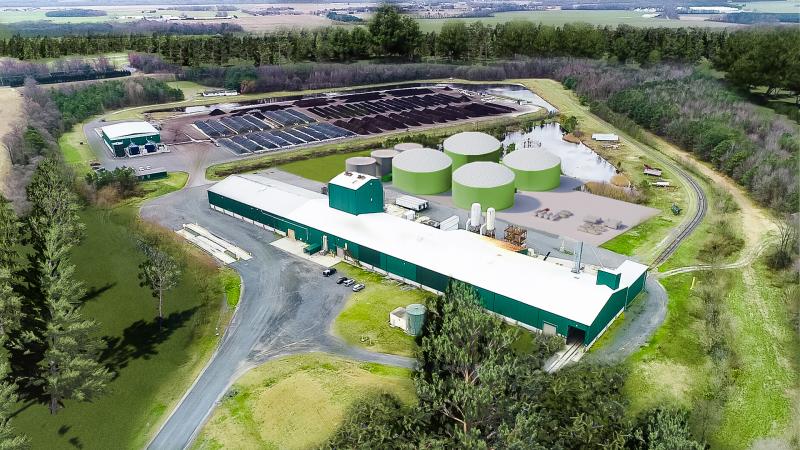Sussex approves $60 million bond for Bioenergy Devco
On the recommendation of its Industrial Revenue Bond Committee, Sussex County Council unanimously approved a low-interest solid waste revenue bond for up to $60 million for Bioenergy Devco and its Bioenergy Innovation Center project, a poultry plant waste-recycling facility south of Seaford.
During council's April 27 meeting, Sussex County Finance Director Gina Jennings said Bioenergy Devco will pay all county costs, including lawyer's fees, associated with issuance of the bond. In addition, the company will pay the county one-half of 1 percent of the total amount of the bond used, which could be as much as $300,000.
Jennings said the county is a conduit to pass through bond market money for capital projects in order to get tax-exempt status, which the county has done in the past for The Moorings at Lewes, Perdue Agricycle and NRG.
Bioenergy Devco, based in Annapolis, Md., filed a conditional-use application to amend four other conditional-use permits issued over the past three decades for the project to convert poultry processing plant waste, known as DAF, into natural gas and compost using an anaerobic digester process at its composting facility south of Seaford off Route 13A.
Council approved the application during its April 20 meeting. Following the county's approval, the application will be reviewed by the Delaware Department of Natural Resources and Environmental Control, which approves and monitors permits.
Natural gas and compost produced
The company purchased the existing composting plant in February 2020 for $15 million from Perdue Farms and has entered into a 20-year contract with Perdue to recycle poultry processing plant waste, or DAF, from four facilities through an anaerobic process.
DAF, dissolved air flotation, is the liquified end product of wastewater treatment at poultry processing plants. A Department of Natural Resources and Environmental Control permit would allow up to 220,000 tons of DAF per year to be recycled at the plant.
In the anaerobic process, poultry waste in the digesters is heated and constantly mixed for about 30 days. Microorganisms break down the material, which is called digestate. A centrifuge will remove excess water from the digestate, with the remaining solid material transferred to the composting facility. There it would be processed with wood waste to make organic compost.
The microorganisms release biogas, which is a mixture of methane, carbon dioxide, water vapor, and traces of hydrogen sulfide and ammonia. The gas will be captured and scrubbed as part of the facility's process.
Chesapeake Utilities will take the biogas off site, clean it to renewable natural gas and inject it into the company's natural gas pipeline.
The Sussex County facility will be the company’s first in Delaware and its fourth project in the United States since joining forces with Italy-based BTS Biogas to enter the United States market.
Group urges Carney to stop project
In response to the vote, Food & Water Watch Delaware organizer Greg Layton issued the following statement:
“Today’s vote confirms one of our worst suspicions – that taxpayers will subsidize the cost of this polluting facility, all to assure venture capitalists a ready profit. The hundreds of residents who expressed public opposition to the biogas scheme should have been considered in the decision to issue the tax-exempt bonds, which are limited in supply, to fund the very project they opposed. Gov. John Carney must stop this project in its tracks, and direct the Department of Natural Resources and Environmental Control to deny Bioenergy Devco its pollution permits.”
For more information
Questions about the project can be submitted via the company's website at bit.ly/bicadproject, which also has several educational resources for download.
Residents and local organizations are welcome to visit the facility for a tour and a deeper overview of anaerobic digestion. On Saturday, May 8, the facility will host an International Composting Week open house. The public is invited.





















































